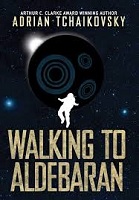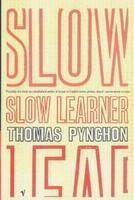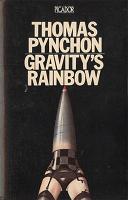 Adrian Tchaikovsky (or, as his mother knows him Adrian Czajkovski – apparently that's not a name to expose UK and US audiences to) is a BFA and Arthur C. Clarke Award-winning author, with the science/magic Shadows of the Apt series to his name (with action and battles scenes LARP tested apparently!) as well as a number of stand-alone novels and shorts, tackling SF with the same gusto as fantasy/entomology. And as all this does make a living now he no longer works as a Legal Executive during the day.
Adrian Tchaikovsky (or, as his mother knows him Adrian Czajkovski – apparently that's not a name to expose UK and US audiences to) is a BFA and Arthur C. Clarke Award-winning author, with the science/magic Shadows of the Apt series to his name (with action and battles scenes LARP tested apparently!) as well as a number of stand-alone novels and shorts, tackling SF with the same gusto as fantasy/entomology. And as all this does make a living now he no longer works as a Legal Executive during the day.
Walking to Aldebaran is a Novella, and the length feels about right for the content and treatment. It follows Gary Rendell, an Astronaut (from Stevenage, he keeps reminding us. Or maybe himself...) lost in 'The Crypts', aka the thing we found out past Neptune. But it's not just there, but a bit everywhere – it seems to connect loads of solar systems, including a substantial number (all?) of inhabited ones. A nice little shortcut, or a trap? Or a bit of both? Either way, he's got separated from his crew mates (we know that some/most of his expedition are dead), and is roaming an endless labyrinth of tunnels, occasionally coming across live or dead aliens, monsters inhabiting these tunnels, and the odd entrance/exit to other worlds. And, of course, the thing at the centre of it all.
Gary tells us that he always wanted to be an Astronaut, but “I just didn't think there would be so much getting lost and eating corpses” he muses, whilst being “huddled in front of a fire that's dying for lack of O2, gnawing on the dessicated chunks of long-dead alien explorer”. Nice. And he indicates that he might have had second thoughts concerning his calling should they have told him what it entails...
Now, if the above sounds rather horrific and dark then this is of course on the one hand correct, given the setting of the story. But there's also a lot of lighter, entertaining bits when he encounters aliens or has his own funny turns, and its all told in a sarcastic tone with Mark Watney-level snarkyness.
This doubly is the case when he weaves in contemporary references including Brexit, contemporary US politics and a short run-down of the history of where these things lead. Not edifying, to no-one's surprise I reckon.
Still, the expedition he came here with was a multinational one, and we get to appreciate the realpolitik of such an endeavour – it's on the one hand realistically complex and beset by politics and continuous change; but on the other it's also hopelessly (I think) overdrawn in the speed of resolution, creation of hardware etc, and entirely under-drawn in term of complexity of such a task. Hard SF it ain't, as you might have figured by now.
But we get a good amount of realistic-sounding astronomy with the background info dumps, explaining Pluto, planet 9, or 10 etc, and of what humanity found out there and how. And of course what it did to the probe we sent, which in turn ensured the international cooperation to send a crewed expedition there – there's nothing like glimpses of non-human-origin space-ships, or random shots of other planets to galvanise at least some political will (and a fair amount of money, I daresay).
The story is told by Gary, as a rambling first-person confessional to an imaginary companion. He calls us Toto. It comes in two distinct threads: present, and history. In the present one we walk with him through the Crypts (remember – dark, monsters, other races, remains of other lost souls/expeditions), in the history part he considers how he, sorry, we! came to be there, why he is alone, and what he encountered in the crypts which changed him and allows him to survive his ordeal.
Adrian's style is a strange and quite fascinating mix of foreshadowing and spilling the beans early, mixed with hedging his bets to have his readers hang on, never mind to occasionally misdirect them – the entire story could be one of Fredric Brown's little tricks.
Also – it's all very Rama, of course, with race-collecting artefact making itself known to developed races with the means to get to it. Except there's more to it, and the unnaturally quick adaptation which Gary undergoes would not gel well with race collection. Nor would the wandering, mixing, dying. And, to spoil that part (hah!) – we never find out what the artefact is for. Because – where's the fun in that?
But if you look past the current/near-future political references and the Martian-grade sarcasm and snark you find yourself looking at a piece of cracking writing which could just as well be a Golden-Era SF story. Or a mirror-image of one, Peter-Watts-does-The-Thing style?
Either way, great stuff, and well worth your time and money!
Title: Walking to Aldebaran
Author: Adrian Tchaikovsky
Reviewer: Markus
Reviewer URL: http://thierstein.net
Publisher: Solaris
Publisher URL: http://www.solarisbooks.com
Publication Date: May 2019
Review Date: 190520
ISBN: 9781786181961
Pages: 104
Format: ePub
Topic: Exploration Adventure
Topic: Modification
Thanks to the publisher for the review copy.













